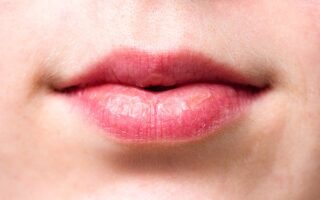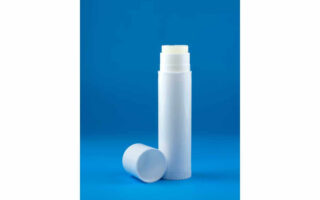Do you have dry, chapped lips?
Lips are one of the most sensitive parts of the body. They need to be moisturized regularly to avoid becoming dry and chapped. Vaseline is a popular lip balm that many people use to keep their lips healthy.
You might love how soft and smooth your lips feel after using Vaseline. Plus, it has a light vanilla scent that will make you feel refreshed each time you use it.
But is vaseline good for your lips? Let’s take a closer look to explore the pros and cons of using vaseline on your lips, so you can make an informed decision about whether or not to use this product.
What is vaseline?
Vaseline is a brand of petroleum jelly.
It’s used to treat chapped lips, dry skin, frostbite, minor burns, and wounds. It works by coating the skin or protecting it from wind or cold. This keeps moisture in and prevents evaporating.
But Is it really safe?
What are the ingredients of vaseline?
The ingredients of vaseline are:
– Petrolatum (85%)
– Mineral oil (10%)
– Fragrance (3%)
– Lanolin (2%)
The ingredients of vaseline may vary, but the most common ingredient is petroleum jelly, which is a semi-solid mix of hydrocarbons that are found in crude oil. Other ingredients may include mineral oil, ceresin, microcrystalline wax, and paraffin.
Is Vaseline Good For Chapped Lips?
Yes, vaseline is a wonderful remedy for chapped lips. Vaseline products are also known as occlusives, as they keep moisture in place. They’re not the same as humectants, which draw moisture from the air and absorb it into their structure.
It acts as a moisture barrier on the lips, preventing moisture from evaporating and keeping them hydrated. It won’t, however, add any moisture to your lips.
The petrolatum in Vaseline provides the barrier, while the petroleum jelly simply acts as a moisturizer. People can use pure petroleum jelly or vaseline for both chapped lips and dry skin on other areas of the face or body. Petrolatum is not considered harmful to health, although some people develop allergies to it. This may result in a rash, inflammation, or itchy skin.
People should consider using a different product if they have an allergy to petroleum jelly or petroleum products. It is important to properly wash the skin after applying Vaseline as these ingredients can clog pores and cause pimples.
What are the side effects of using vaseline?
- The side effects of using vaseline can include skin reactions, such as a rash, inflammation, or itchy skin. People with allergies to petroleum jelly or petroleum products may also experience these side effects.
- Some people do not like the greasiness of using petroleum jelly. If you apply too much, your hair and clothing can pick up its residue.
- Because Vaseline is a by-product of petroleum, it is not very environmentally friendly.
- Vaseline ingredients can clog pores and cause pimples.
Ingredients to Avoids That Can Dry Lips
Some ingredients in lip balms and glosses can actually dry out lips, making the problem worse. Ingredients to avoid if you have chapped lips include:
– Menthol
– Camphor
– Alcohol
– Fragrance
– Peppermint
– Cinnamon
– Clove
– Eucalyptus Oil
– Chlorphenesin
– Phenoxyethanol
– Alcohol Denatured
Ingredients That Can Help Heal Dry Lips
Ingredients to look for include:
– Shea Butter
– Coconut Oil
– Olive Oil
– Cocoa Butter
– Beeswax
– Sunflower Oil
– Aloe Vera Extract
– Honey
– Vitamin E
– Vitamin C
– Jojoba Oil
– Lavender Oil
How to use Vaseline?
Before going to bed, gently wash your lips with warm water and mild soap. Dry the area completely before applying the petroleum jelly. Make sure it goes no further than the outline of your lips. Using too much will only make the problem worse.
Be careful not to get Vaseline anywhere else on your face or body, as it can clog pores and cause pimples.
What is the best way to use vaseline?
There are a few different ways that you can use Vaseline on your lips to help them heal and stay hydrated. Before going to bed, gently wash your lips with warm water and mild soap. Dry the area completely before applying the petroleum jelly.
Just take a small amount and rub it into the chapped areas of your lips overnight. Be gentle and don’t apply too much – any excess will just find its way to other areas of your skin. If you’re applying Vaseline under lipstick during the day, we recommend simply smearing a tiny bit onto bare lips (not underneath or on top)15 minutes before you start getting ready. Allow time for the petroleum jelly to sink in before applying other products like lipsticks/glosses, which may peel off patches of dead skin cells with them when they come off at the end of the day.
It is important to remember that vaseline will not eliminate dry lips. You should still moisturize your lips with petroleum jelly or another suitable product before applying any lip color. Just use it when you need extra protection against the elements, such as wind, sun, cold temperatures, and drying soaps.
Other Alternatives
- Lip Balm containing COCONUT OIL, ALMOND OIL, VITAMIN E, OLIVE OIL, BEESWAX, COCOA BUTTER, and HONEY.
How to Prevent Dry Chapped Lips?
- Chapped lips can be prevented by using a lip balm or cream that contains SPF.
- You should also avoid licking your lips, which can make them drier.
- Drink plenty of water and avoid drinking too much alcohol and caffeinated beverages.
- If you wear lipstick, make sure to use a lip balm underneath it.
- Humidifier usage is recommended during the winter season.
- Lip products with artificial dyes and fragrances, as well as hazardous chemicals like sulfates and parabens, should be avoided.
- Regularly exfoliate your lips.
Conclusion: Is vaseline good for your lips?
A vaseline is a great option for those looking for an affordable and easy-to-use lip balm. It is available almost anywhere, and its ingredients are simple and natural. However, it can be greasy if too much is applied, and it should not be used in place of other moisturizers. Vaseline may also cause pimples or skin irritations for some people. If you have dry lips, try using a lip balm that contains SPF to protect them from the sun, licking your lips less often, drinking plenty of water, and avoiding caffeine and alcohol. Humidifiers are also recommended during the winter months.
You deserve soft, kissable lips all year round.


